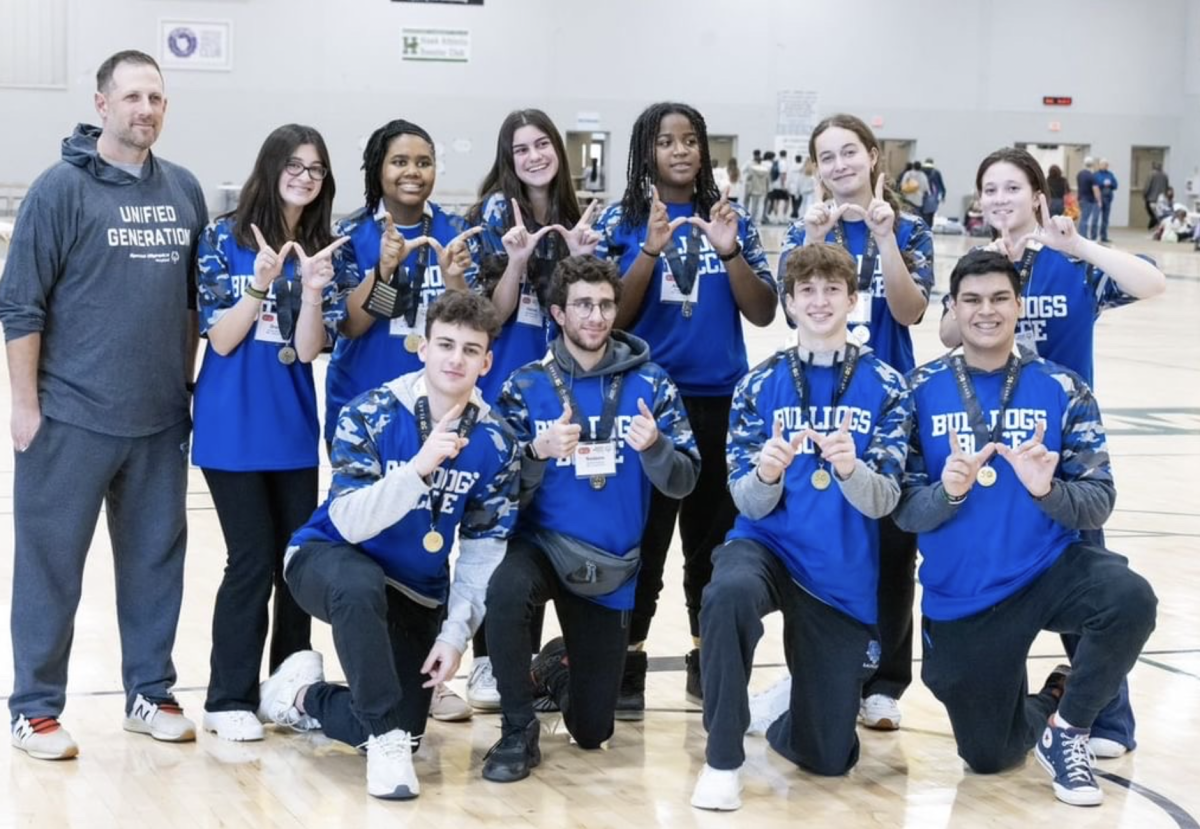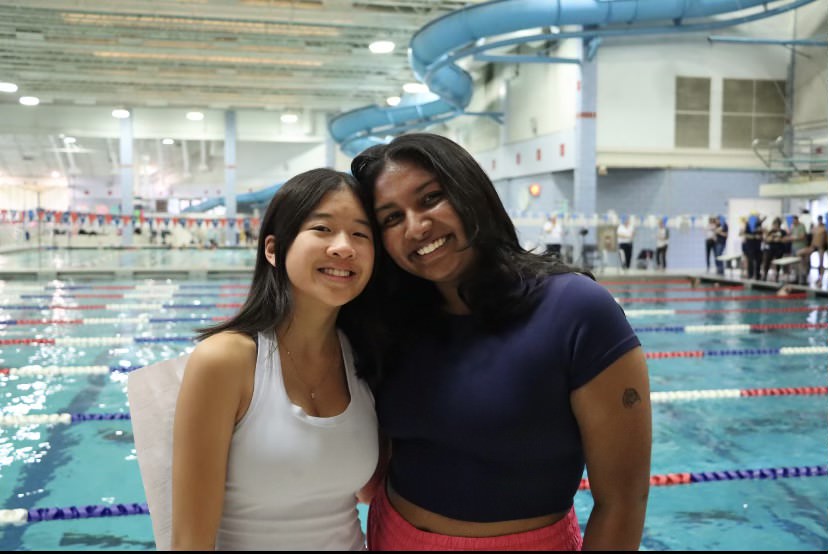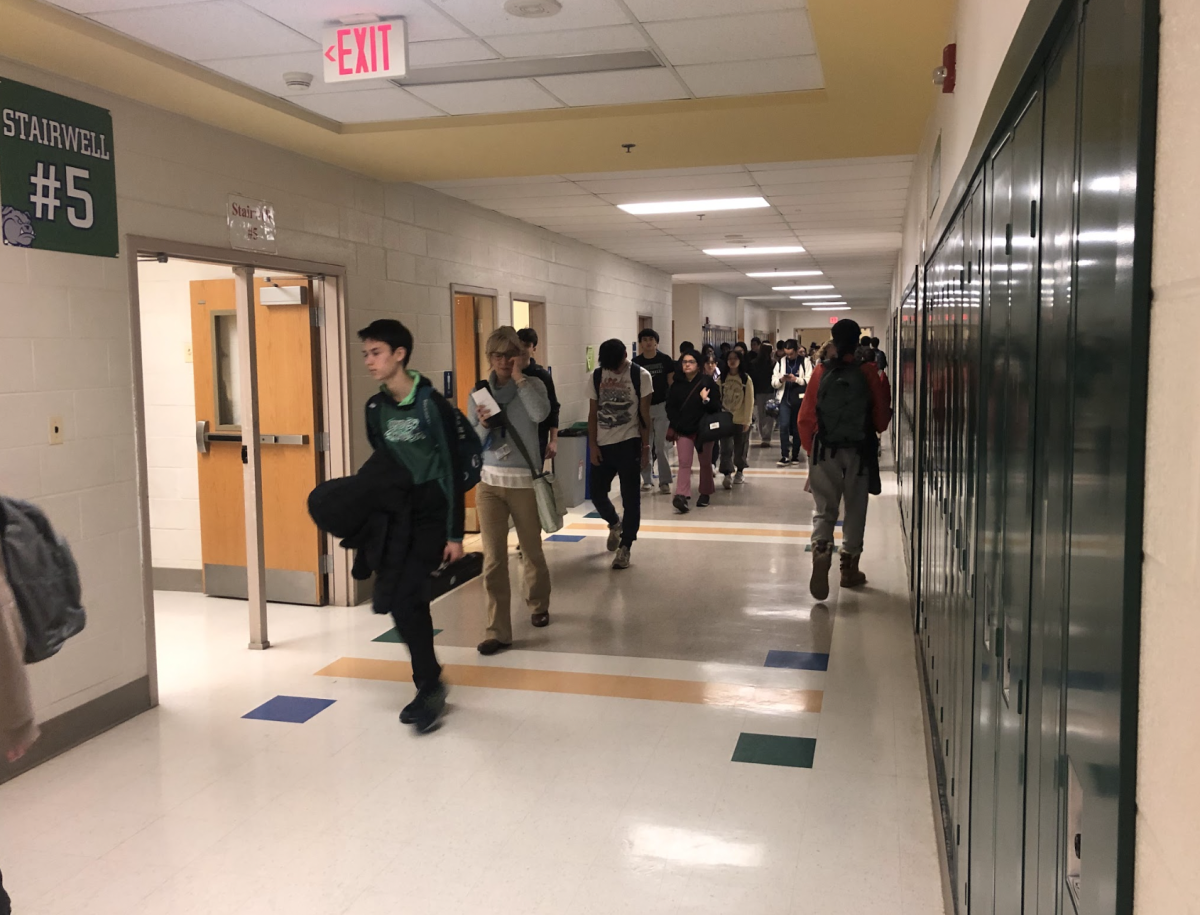CHS students, staff, sports teams and clubs came together in April to celebrate Autism Awareness Month.
Spring season athletes wore light blue at designated games to support the cause, and CHS students were encouraged to wear light blue April 20. The Each One Reach One Club, SGA, the Autism Program and some students in the Bridge Program also distributed puzzle piece ribbons at lunch.
“I thought it was really good getting our students out there,” Autism Program teacher Coleman Hall said. “I think that’s one of the main things about autism awareness—getting our students out there and interacting with regular education students.”
The Daily Dose featured students from the Autism Program and a video that presented facts about autism.
“It is important to promote autism awareness because autism is a disorder that affects so many worldwide,” said Susan Pereles, Event Director at Autism Speaks’ D.C. Office. “Autism affects one out of 88 children, one out of 54 boys, one out of 254 girls. This is a national crisis.”
According to the Center for Disease Control and Prevention, the number of children diagnosed with autism each year has increased by 23 percent since 2009.
According to a 2012 Autism Speaks fact sheet, autism is the fastest growing serious developmental disability in the country. It affects more children than diabetes, AIDS, cancer, cerebral palsy, cystic fibrosis, muscular dystrophy and Down syndrome combined, but autism cannot be medically detected or cured.
“Autism Speaks is the largest non-profit funder of autism research for treatments and cure,” Pereles said. “We work to raise awareness, provide family services and advocate for state and federal insurance reform.”
According to CHS parent Mona Zeiberg, who has a son in the Autism Program, CHS is the first MCPS high school to officially observe Autism Awareness Month. However, senior Marko Audige, who has Asperger’s Syndrome, questions the benefits of observing Autism Awareness Month.
“I think it’s a good thing that CHS is probably clearing up confusion for students who don’t know very much about autism, but I’m hoping that no mixed messages will come across deaf ears and leave a wrong impression among our peers,” Audige said. “I hope that there will be at least a marginal minority that will learn a few things about autism afterward.”
The nine students who participate in the Autism Program and over half of the 62 students in the Bridge Program have been diagnosed with some form of autism. Students in the Bridge Program work towards earning a high school diploma, while students in the Autism Program focus on life skills and continue to participate in the program until they are 21.
Zeiberg praises the CHS Autism Program for its integration of academic, vocational and social skills.
“It’s a really good program because the kids are in the classroom, but then they go out on job sites so that they can learn to work and have productive lives too,” Zeiberg said. “We are really lucky in this area that we have this program at CHS because even though the kids are in separate classes, they can still benefit from being with everyone else.”
Autism Program teacher Jenell King and Zeiberg encourage CHS students to introduce themselves to the students involved in the Autism Program.
“If they see our students in the hallway, feel free to come up and say hi,” King said. “We just want people to realize that they are a part of the school.”
According to King, some students are hesitant to approach their peers in the Autism Program because they do not understand their behavior. There have also been instances where students have taken advantage of those students with autism.
“There are cases where mainstream students may not be genuine in their extension of friendship,” Special Education resource teacher Jan Shapiro said. “It is very difficult for students with autism to read the social signs and just like with anyone else, it is very hurtful.”
Audige agrees that students with autism are sometimes mistreated by other students.
“People seem to enjoy ridiculing the autistic community and they think they’re fortunate that they’re not like us,” Audige said. “I see their reactions as a form of prejudice in a different incarnation. While people with autism are generally socially impaired, that’s just it; it’s social impairment. Just because you can’t speak very well doesn’t mean that you’re dumb overall.”
According to King, students in the Autism Program enjoy interacting with the student aides in their classes as well as with other friendly students.
“Just be a friend,” King said. “That is what we need.”







